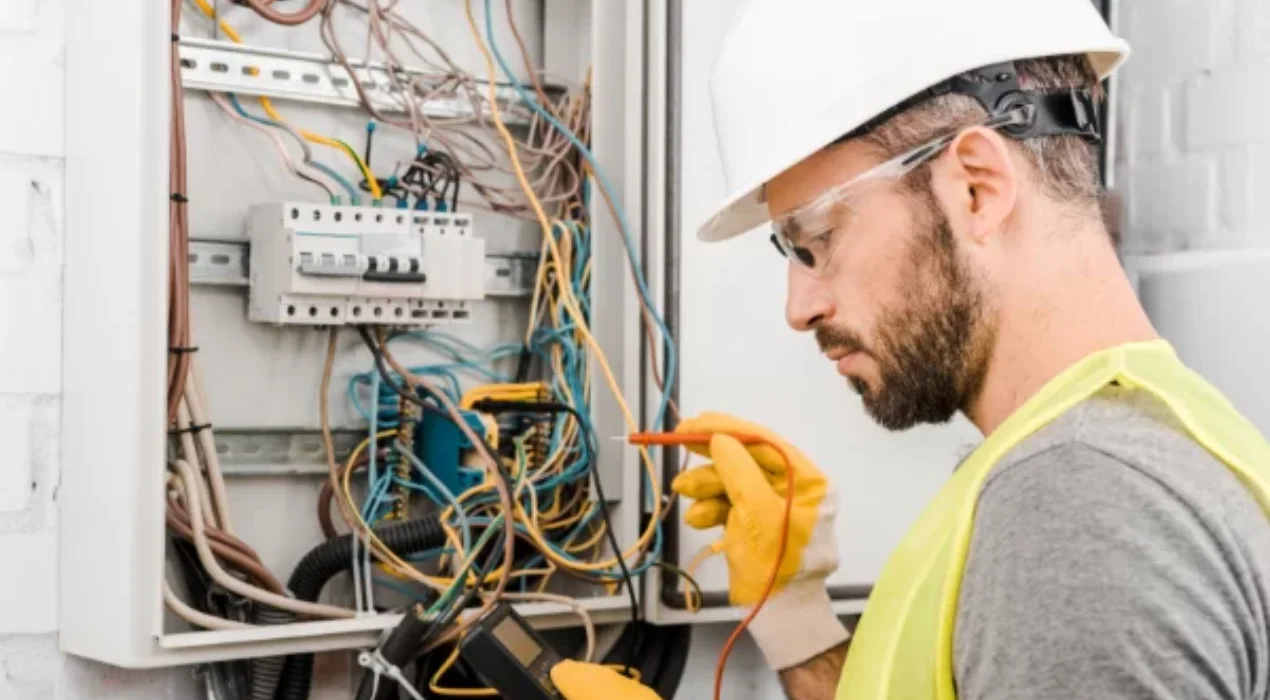Too Many Requests from Your Network
Please complete verification to access this content.
On average, electrical wiring should be inspected every 10 years and replaced every 25-40 years, depending on the condition, wiring type, and usage. Regular inspections help identify any issues before they become safety hazards. For expert advice and services, visit Buraq Electric.
Detailed Guide to Replacing Electrical Wiring
Electrical wiring doesn’t last forever, and over time, it can deteriorate due to wear, insulation degradation, or even changes in how we use electricity. Knowing when to replace wiring is crucial for home safety and efficiency. Here’s what you need to know.
1. Factors That Determine Replacement Timing
- Age of the Wiring: Wiring from 40+ years ago, especially if it’s aluminum or knob-and-tube wiring, may need replacing, as it may not meet modern safety standards.
- Signs of Wear: Flickering lights, frequent breaker trips, burnt smells, or warm outlets are signs that wiring may need replacement.
- Usage Demands: Increased power needs due to modern appliances can strain older wiring, increasing the risk of overheating.
- Previous Repairs or Updates: If sections of wiring have been replaced or updated in the past, the remaining sections may still be outdated.
2. Average Lifespan of Different Types of Wiring
- Copper Wiring: Typically lasts 50+ years if in good condition.
- Aluminum Wiring: Often needs replacement within 25-40 years due to corrosion risks.
- Knob-and-Tube Wiring: Common in pre-1940s homes, this outdated method lacks grounding and is generally considered unsafe by modern standards.
3. Warning Signs You Shouldn’t Ignore
- Frequent Circuit Breaker Trips: This could indicate overloaded circuits or outdated wiring.
- Flickering or Dimming Lights: Often caused by wiring issues that restrict current flow.
- Discolored or Scorched Outlets and Switches: Overheating wiring can cause visible damage.
- Buzzing or Burning Smell: This could indicate insulation breakdown, which is a serious fire hazard.
4. Benefits of Replacing Old Wiring
- Safety: Modern wiring reduces the risk of electrical fires.
- Increased Efficiency: Updated wiring can handle today’s high-energy demands, reducing strain on your system.
- Higher Home Value: New wiring is a valuable upgrade, particularly for older homes, which can make a property more attractive to buyers.
5. How Often to Schedule Inspections
- Every 10 Years for Homes Under 40 Years Old: Regular inspections every 10 years are generally enough for newer homes.
- Every 5 Years for Older Homes: Homes older than 40 years should ideally have an electrical inspection every 5 years to catch any aging or worn-out wiring.
6. Trust Buraq Electric for Your Electrical Needs
Replacing or updating wiring isn’t a DIY task—it requires professional expertise to ensure safety and compliance with building codes. At Buraq Electric, our licensed electricians specialize in inspections, wiring replacements, and electrical upgrades. Whether you need an inspection or a full rewiring, we’re here to help.
Conclusion
Replacing your home’s wiring at the right time is essential for both safety and efficiency. If your home hasn’t had an inspection in over a decade, or if you notice warning signs, consider reaching out to a professional. For reliable, expert electrical services, visit Buraq Electric today.
